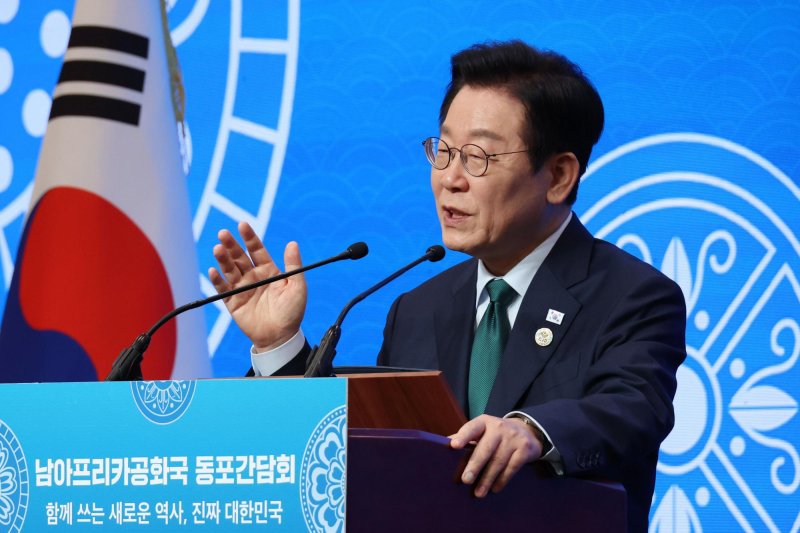South Korean President Lee Jae Myung emphasized that reunification with North Korea remains the ultimate goal of South Korea and is enshrined in its constitution. Speaking from Johannesburg during the Group of 20 summit, Lee articulated his vision for achieving this through dialogue rather than unilateral actions. His remarks were made in a written interview with Turkey’s Anadolu Agency ahead of his upcoming state visit to Ankara.
“Reunification is not merely an ideal; it is a constitutional duty,” Lee stated. He highlighted the importance of pursuing a gradual and phased approach to reunification, focusing on peaceful coexistence and mutual development that reflects the democratic will of the people on the Korean Peninsula. Since assuming office in June 2023, Lee has consistently aimed to resume talks with North Korea, emphasizing respect for the North’s political system and a rejection of reunification through absorption.
Lee reiterated that his administration is committed to restarting dialogue with Pyongyang, noting that inter-Korean communication channels remain frozen. “We are ready to talk with North Korea through any channel,” he said. “The door to dialogue will always remain open.” He also indicated that South Korea has been closely coordinating with the United States, having asked U.S. President Donald Trump to act as a “peacemaker” while offering diplomatic support for renewed U.S.-North Korea dialogue.
On the topic of South Korea potentially developing its own nuclear weapons, Lee reaffirmed his nation’s commitment to the Nuclear Non-Proliferation Treaty. He emphasized the importance of strengthening extended deterrence with the United States, which includes Washington’s commitment to utilize its full military capabilities, including nuclear forces, in the face of North Korea’s ongoing nuclear and missile threats. “The extended deterrence between South Korea and the U.S. is strengthening to more effectively counter any provocation,” Lee stated.
Regional Stability and International Relations
Addressing the growing competition between the United States and China, Lee underscored the necessity of maintaining stable relations with China, which is South Korea’s largest trading partner. He cautioned against escalation in the arms race within Northeast Asia, emphasizing the need for diplomatic engagement.
In discussing relations with Turkey, Lee expressed South Korea’s desire to deepen cooperation in defense and nuclear energy sectors, aiming to enhance the strategic partnership between the two nations. He noted that South Korea’s expertise in military technology, including tanks, artillery, and naval systems, combined with Turkey’s advancements in drone technology, presents significant potential for collaborative defense projects.
Lee cited Turkey’s Altay main battle tank program, which incorporates Korean engines, as a prime example of the strong bilateral defense ties. He expressed hope for increased collaboration in joint production, technology partnerships, and personnel training initiatives.
Further discussions are underway regarding South Korea’s potential involvement in Turkey’s planned Sinop nuclear power plant on the Black Sea coast, as well as cooperation on small modular reactors to advance energy collaboration.
The statements made by President Lee reflect a comprehensive approach to regional stability and international partnerships, highlighting South Korea’s commitment to peaceful dialogue and strategic cooperation with both North Korea and Turkey.
